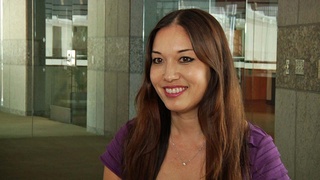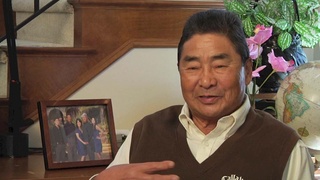Interviews
Returning to America after the war (Japanese)
(Japanese) Now here’s a story about my returning to America… Since I had been a part of the Japanese military for a long time, I thought there was no way I’d be able to return to America. However, the man I mentioned earlier—George Suematsu—he looked something up for me, and told me “Since you were still a minor when you joined the military—since it was before you turned 17 years old, according to American law, you haven’t broken the law. If you’re a minor, it doesn’t matter if you’ve been in another country’s military; in fact, even if you commit murder, if you’re 16 or 17, there’s some sort of law that will protect you.” I said, “Oh, really? Such a thing exists?” and so I went to ask the American consulate, and sure enough, they told me “Yes, it does.” “For you, it doesn’t matter if you were with the Japanese military when you were 17. You’ll have dual citizenship until you turn 21, and when you do turn 21, you’ll have to decide to either renounce your Japanese citizenship or your American citizenship. You’ll be able to make your own choice,” he told me. Well, there was my life in Japan, but I decided “I’ll try my luck back in the U.S.,” and I asked my uncle (in America) to take me in, and thankfully he did. So in June of 1952… no, June of 1951, I returned to America.
Date: June 17, 2008
Location: California, US
Interviewer: Yoko Nishimura
Contributed by: Watase Media Arts Center, Japanese American National Museum






